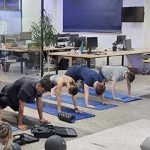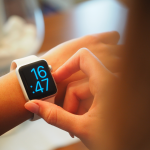Walking Or Running: What is the best option for you?
Many people wonder which is better if to run or to walk. The answer is: It depends. The decision to choose one activity over another is personal and it is necessary to evaluate the advantages and disadvantages of each of these exercises to determine which one best suits your needs. Running and Walking can help improve our mental and physical health.
There are a few differences between the benefits of walking or running for our health. Both activities improve the performance of the circulatory system, boost the immune system, raise self-esteem, lower the risk of developing depression, and provide a feeling of general well-being. Running provides greater aerobic capacity and muscle strength, while walking generates less impact on the joints and less probability of injury. (1)
Many say that going for a run or a walk is a great option for feeling healthy and losing weight. Therefore, it is convenient to ask yourself: What is better to run or walk?
Benefits Of Running And Walking
Currently, numerous studies support the benefits of both physical activities, however, the choice between one and the other is based on the experience of each person and of course on their initial physical abilities. Many people may be able to give up running because if it is not practiced with the proper warm-up and footwear it may not be the best experience, something similar happens when walking, if it is practiced at a very low speed, this activity will not have the aerobic impact expected.
Any physical activity that involves movement is beneficial for health, performed constantly can reduce up to 40% of the problems generated by a sedentary lifestyle, such as the risk of diseases including diabetes or hypertension, it also reduces stress levels and improves the performance of the joints. (2)
The world health organization recommends a minimum of 150 minutes a week of moderate physical activity, this translates into at least 30 minutes a day of exercise, such as walking or running, the intensity and duration can be adjusted depending on the physical capabilities and goals of each person. (3)
Benefits of walking
- Due to the low intensity, the largest proportion of the calories used comes from fat stores.
- Helps regulate blood sugar levels and blood pressure.
- Walking at moderate intensity for an hour is relaxing and can burn more than 200 calories in the process.
- Walking does not strain the muscles and joints; therefore, the risk of injury is lower.
- Walking does not require planning or large spaces; it is an activity that can be done without planning or training.
- It is an activity without restrictions, walking is suitable for almost everyone, regardless of age or physical condition, in fact, in people who have undergone surgery, walking is an important part of the recovery process.
Walking may be for you if:
- You want to start a physical activity that doesn’t require a lot of planning or time.
- You are recovering from an injury or have difficulty doing high-intensity sports.
- You suffer from obesity or overweight.
- You have joint injuries in the knees, ankle, or back.
- You like quiet and outdoor sports.
Benefits of Running:
Running is a high-intensity activity, thanks to this when it is practiced there is a high release of endorphins and an immediate feeling of well-being, being an outdoor sport, it favors mental health and reduces stress.
Running requires a high-calorie consumption and greater activity of the cardiovascular system, therefore, it is an exercise that favors weight loss and cardiovascular and mental health. (4)
- Helps lower cholesterol and blood pressure levels
- Protects and strengthens muscle mass
- It helps prevent osteoporosis
- Improves blood circulation (5)
- Reduces the risk of depression
You may choose to run if:
- You want a high-intensity exercise.
- You like to play sports and have always practiced it.
- You don’t have too much free time.
- You want short-term results.
- You prefer to exercise alone.
- You are looking for greater cardiovascular gains.
How to learn to run properly?
To run properly it is necessary to adapt, if you have not practiced intense physical activity recently it is advisable to start with moderate walks, in which breathing and resistance are exercised.
If you start jogging, it is also best to follow a beginner running plan. Define when and how long you should run every day. With a plan like this, you will improve from week to week and soon you will be able to do the 30 minutes +
Which is better? Walk or run?
Contrary to what most think, in terms of calorie consumption between the two activities there is not much difference, the caloric consumption between the two is almost the same, the biggest difference is time. During a run, you burn more calories in less time, while in a walk you can burn the same number of calories, but it takes more time. For example, a 5-minute run has the same benefits as a 15-minute walk.
The number of calories burned during the two activities depends on many factors (age, weight, fitness, speed, running surface, but if you’re comparing calories burned over the same distance, it’s speed that counts.
Walk or Run: What You Need to Know
It is indisputable that running generates a higher caloric expenditure per minute, compared to walking, because it is a more intense activity and therefore the body is working harder.
A moderate run burns about 30% more calories than a slow walk the same distance, so increasing your running speed results in only a minimal increase in calories burned.
Regardless of the activity you decide to do, it is necessary to incorporate changes in your diet, this will not only help you achieve your goals, but it also produces changes in your physical condition, therefore, through proper nutrition you can improve your performance in races or walks.
Either way, choose the activity that you enjoy the most, and that makes you feel good. This will help you stay active and be consistent, all this together will help you improve your health soon!
References
- https://medlineplus.gov/ency/article/001941.htm
- https://www.ncbi.nlm.nih.gov/pmc/articles/PMC4067492/
- https://www.who.int/dietphysicalactivity/publications/pacific_pa_guidelines.pdf
- https://pubmed.ncbi.nlm.nih.gov/16377300/
https://www.ahajournals.org/doi/full/10.1161/ATVBAHA.112.300878






